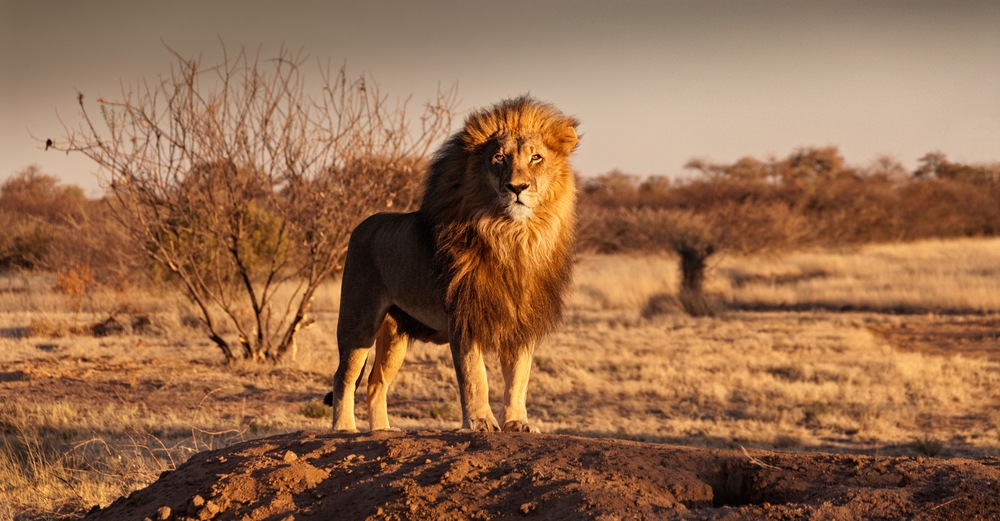Article Highlights:
- In the decades to come, East Africa will be the world’s premiere growth hotspot.
- Kenya received a record US$1.63 billion of foreign direct investment in 2018.
- Investing directly in African companies is tricky, but I found a great way to do it.
Quick: Name a world region that hosts 10 countries with annual gross domestic product (GDP) growth over 5% for the last few years.
Asia? No.
Africa.
I’ve written about Africa’s economic potential before.
But being here — I’m at my second home in Cape Town, South Africa, for the U.S. summer — reminds me why I’m so bullish on the continent.
It’s the kids.
Everywhere I go, there are more young people than old folks.
Things aren’t always easy for them, that’s true.
But the sheer number of African youths will drive a demographic boom that will rival China’s massive economic boom of the last two decades.
Here’s how to be part of it!
Africa: The Next Big Thing
Ten years from now, everyone will be talking about “African Lions.” Investing in them now will lead to massive gains.
I don’t mean the legendary king of the jungle.
You see, the global economy’s center of gravity is shifting.
Over the past few decades, it’s been transformed by an economic revolution in East Asia.
First there was Japan’s rapid postwar development.
Then came South Korea, Taiwan, Hong Kong and Singapore. These were called the “Four Asian Tigers.”
Then, spectacularly, China.
In the decades to come, the east of another continent — Africa — will be the world’s premiere growth hotspot.
Part of this is pure mathematics.
Countries starting from a low base always grow faster than those further along. And since two-thirds of GDP growth is determined by population growth, Africa’s bubble of young people will guarantee high growth rates.
But there are other factors:
- Geography. Africa’s east coast is ideally located. It’s adjacent to the trade routes exiting the Suez Canal. It’s near fast-growing South Asian markets. It has several excellent harbors.
- Human capital. The three English-speaking countries in East Africa — Kenya, Tanzania and Uganda — have good literacy levels and a large, young, cosmopolitan middle class.
- Banking. Kenya is a world leader in mobile banking systems. Mobile banking access across the region — which facilitates fast payments and thus commerce — has created a vibrant local economy in both urban and rural areas.
- Technology. East Africa was connected to the global fiber optic network in 2009. This gives the region strong data infrastructure. Combined with a strong stock of technical skills, this has boosted the tech sector, attracting foreign investment.
- Economic freedom. The East African English bloc is far less regulated and more investor-friendly than it was just a decade ago. Kenya has made remarkable progress in the World Bank’s “Doing Business” ranking. After gaining 16 places in 2017 and 12 in 2018, it gained a further 19 places in the 2019 report, reaching 61st out of 190 countries.
Harambee!
Kenya is the hub of this emerging region. It’s been one of the world’s fastest-growing economies in recent years, averaging 5.5% to 6.5%.
Southern neighbor Tanzania has averaged 6% to 7%, whilst northern neighbor Ethiopia is the world’s fastest-growing economy at over 8% per annum.
Foreign investors love it. Kenya received a record US$1.63 billion of foreign direct investment (FDI) in 2018, equivalent to 1.9% of its GDP.
The United Kingdom, the Netherlands, Belgium, China and South Africa are the main investors in Kenya.
Notably, this investment is spread across technology, infrastructure, tourism and manufacturing. It’s not just agriculture and mining anymore.
FDI is why the Kenyan economy is less crisis-prone than many other emerging markets.
Although it has large trade and budget deficits, the high level of FDI means that it isn’t overly reliant on volatile bond market flows to balance its national accounts. That keeps the Kenyan shilling stable and reduces exchange-rate risk.
In addition to private FDI, Kenya has also received large injections of Chinese government capital to modernize the rail and road links between the capital, Nairobi, and the main port, Mombasa. That has dramatically improved the country’s attractiveness as a manufacturing and transshipment hub.
How to Grab the Lion’s Tail
Investing directly in African companies is tricky.
For one thing, many of the most successful companies, such as Kenyan telecommunications provider Safaricom, are subsidiaries of foreign companies — in this case, Britain’s Vodacom.
Safaricom’s rapid growth is diluted by the weak performance of other Vodacom divisions, so this indirect route doesn’t work.
Similarly, few African countries other than South Africa have shares traded in the U.S. as American Depository Receipts.
Another option is to invest directly in the Nairobi stock exchange, one of Africa’s busiest.
Fidelity, E-Trade, Charles Schwab and Interactive Brokers all offer foreign brokerage services. But this can be complicated.
My investment vehicle of choice is an exchange-traded fund (ETF) called the VanEck Vectors Africa Index ETF (NYSE: AFK). AFK includes Africa’s top companies. Ten percent of its holdings are in Kenyan companies.
AFK isn’t ideal because it covers all of Africa rather than just East Africa. But it’s a start.
And I predict that in coming years we’ll see more ETFs with exposure to the African Lions.
Because where there’s profit to be made, investment will follow!
Kind regards,
Ted Bauman
Editor, The Bauman Letter
